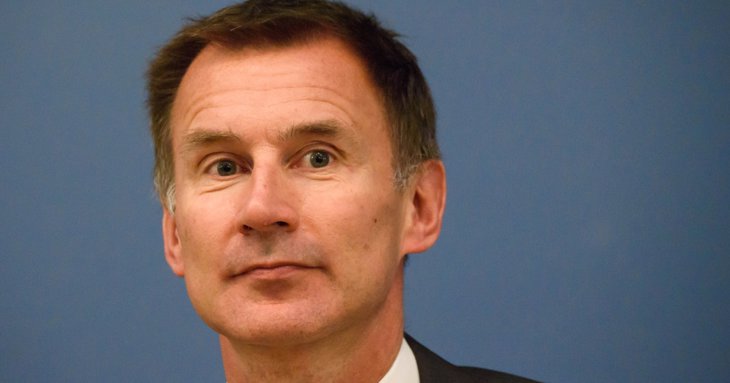After the uncertainty triggered by his predecessor, it was unlikely that Chancellor Jeremy Hunt's inaugural autumn statement would we welcomed with much fanfare - and the response from Gloucestershire's businesses so far has been restrained at best.
Stability is the word on everyone’s lips as business leaders seek to manage in what the Chancellor has admitted is officially a recession, but there was positive feedback for some of the measures and the tone of his statement.
Although with fuel bills at an all-time high, inflation at the highest rate on record of 11.1 per cent, interest rates rising and unemployment seemingly set to follow, many felt more could and should have been done.
Ruth Dooley, chairwoman of the business-led local enterprise partnership GFirst LEP and partner at Hazlewoods, said: 'The Chancellor’s Autumn Statement didn’t have many surprises as the ground had been carefully laid. This was sensible considering the financial turmoil following the mini-budget.
‘The problems of high inflation and interest rates will affect everyone but the measures announced will mean that those with the highest incomes and highest profits will pay the largest share of filling the shortfall.
‘The government is looking to create stability which is what is desperately wanted by all businesses. Only time will tell if this aim is achieved.’
Dev Chakraborty, deputy chief executive of GFirst LEP, said: ‘Unemployment will undoubtedly rise across the UK, but Gloucestershire will hopefully do better than other areas due to the fact that we have strength in multiple business sectors.
‘The devil will be in the detail in the coming days and weeks - are Investment Zones dead; will there be further rounds of Levelling Up funds; what funding will Growth Hubs receive? Challenging times for all.’
Jon Goodwin, finance director at Tewkesbury-headquartered fashion brand Weird Fish, said: ‘The £14 billion support package for business rates is appreciated. There has been a significant need for business rates to be overhauled to make it fairer particularly for the retail, hospitality, and leisure sector where costs are substantial.
‘Yet this package is said to help around 700,000 businesses across the UK. According to government figures there are estimated to be 5.5 million UK private sector businesses in the UK. Therefore, only around 12 per cent of businesses in the UK will benefit, so it doesn’t go far enough.’
He added: ‘The decision to increase the energy windfall tax from 25 per cent to 35 per cent is welcomed, but the existing system needs to be carefully reviewed. Businesses are still struggling enormously with energy bills.’
Sam Holliday, Federation of Small Businesses development manager for Gloucestershire, Bristol, Bath and the South West, said businesses did not have high expectations pre-statement, but 'it still felt like something of a wasted opportunity'.
'At a time where we know small business confidence is very flat and many SMEs (small and medium-sized businesses) are genuinely worried about getting through the winter, the Chancellor could have done a lot to try and raise the spirits and encourage entrepreneurship, but it all felt very cautious with a few stings in the tail as well.
'On the plus side, it was good to know that there will be business rates help by doing revaluation next year and that the energy support will remain in place until at least April, although we do want to see some early commitment to extending that as well.
‘Less positively, the freezing of thresholds on employer National Insurance and VAT will have a real time impact on the bottom line and the cutting of dividend taxation allowances will be a blow to hard-working owners of limited companies who so often miss out with support.
'Overall, this didn't seem to be a package where business was at the heart of thinking and there was very little to incentivise or inspire Gloucestershire small businesses ahead of a testing winter.’
Emily Gibbon, manager of city centre business group Gloucester BID, said: ‘My first thought from the statement is ‘where is the support for small businesses, the independents and hospitality, that will be hit by the pinch of lesser spending?’
‘It's going to be a long rocky road that, without a structured, understandable, trustworthy plan many will struggle. The government has got a lot to do to gain trust from their mistakes.’
Heath Gunter, chief executive of the Cheltenham town centre business group Cheltenham BID, said: ‘The Autumn Statement will provide some much-needed stability to businesses during these uncertain times, but I would have liked more support to address the core issues most of our businesses are facing; rising energy costs, increasing staff costs, and a shortage of labour.
‘I believe more needs to be done to support businesses in these areas, even though they were mentioned in the statement. A £13.6 billion business rates support package over the next five years is welcomed.
‘We will wait to see what the details of this package are, but on the surface, it appears to be a welcome relief for so many businesses who were expecting an increase in April.’
Matt Griffith, director of policy at Business West, which represents chambers of trade across the West, said: ‘The statement brings us back from the brink of the sharp rises in interest rates and damage to confidence we saw from the mini budget.
‘There were also small glimmers of light in slightly better projections for growth from the OBR (Office of Budget responsibility) compared to the Bank of England.
‘Looking specifically at taxes and spending that directly affects businesses, the research and development scheme for smaller businesses has been cut which will impact many firms in investing in new innovation at a time where stability is needed.
‘Revaluation of properties for business rates will proceed next year as scheduled, with some support to prevent big jumps in bills.
‘Employers’ National Insurance levels will remain unchanged, but the national minimum and living wage rates are increasing by just under 10 per cent from April 2023 based on record inflation.
‘Disappointingly, there was almost no mention of our region in plans for specifically targeted boosts to local growth.
‘However, after several years of political turbulence and changing government business and economic strategies, there is now a need for a return to seriousness and stability in how government plans and delivers its economic plan.
‘We cannot afford optimism of a future return to growth to be forfeited by more lost opportunities to deliver the changes and confidence business needs.’





















